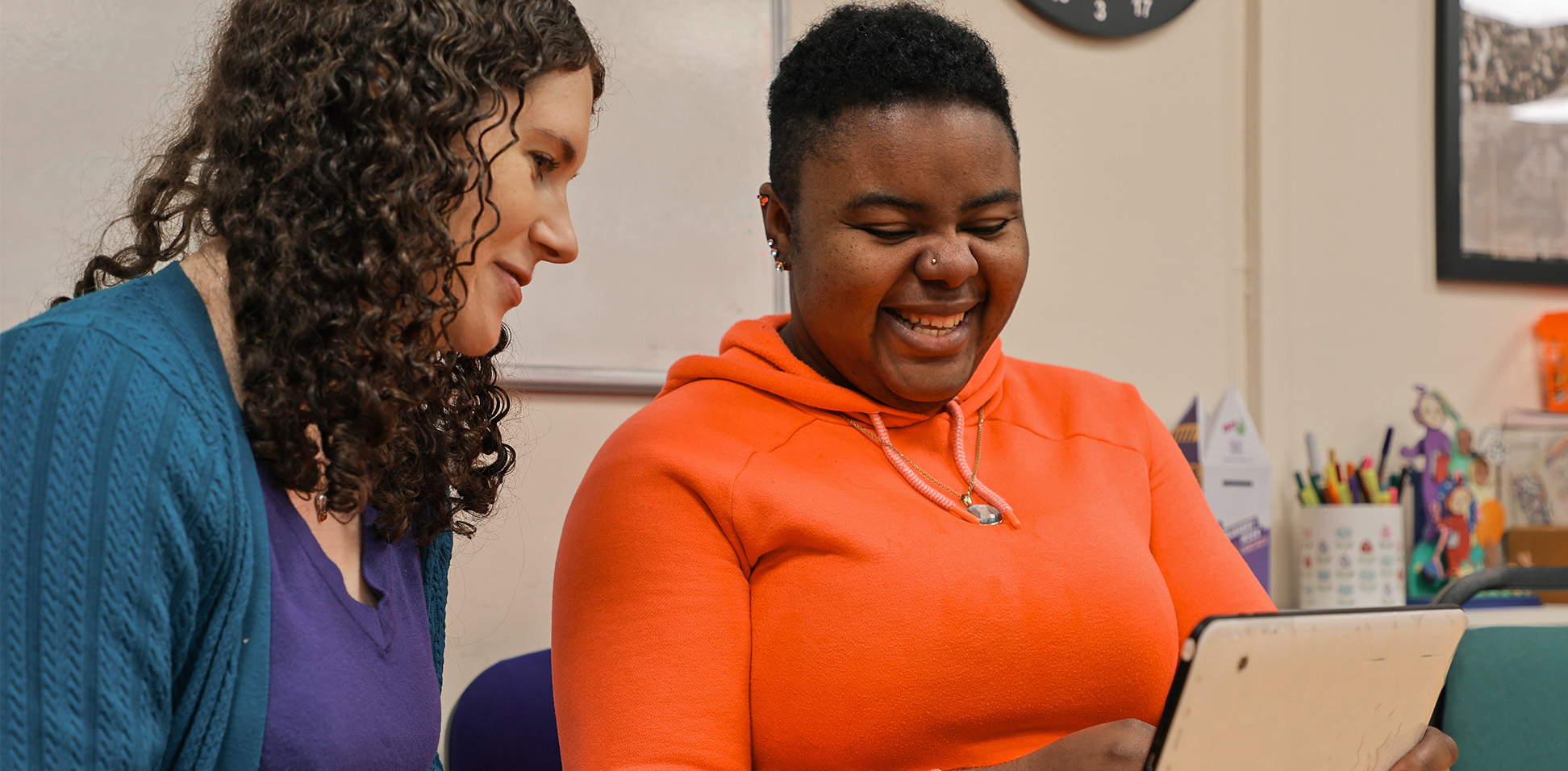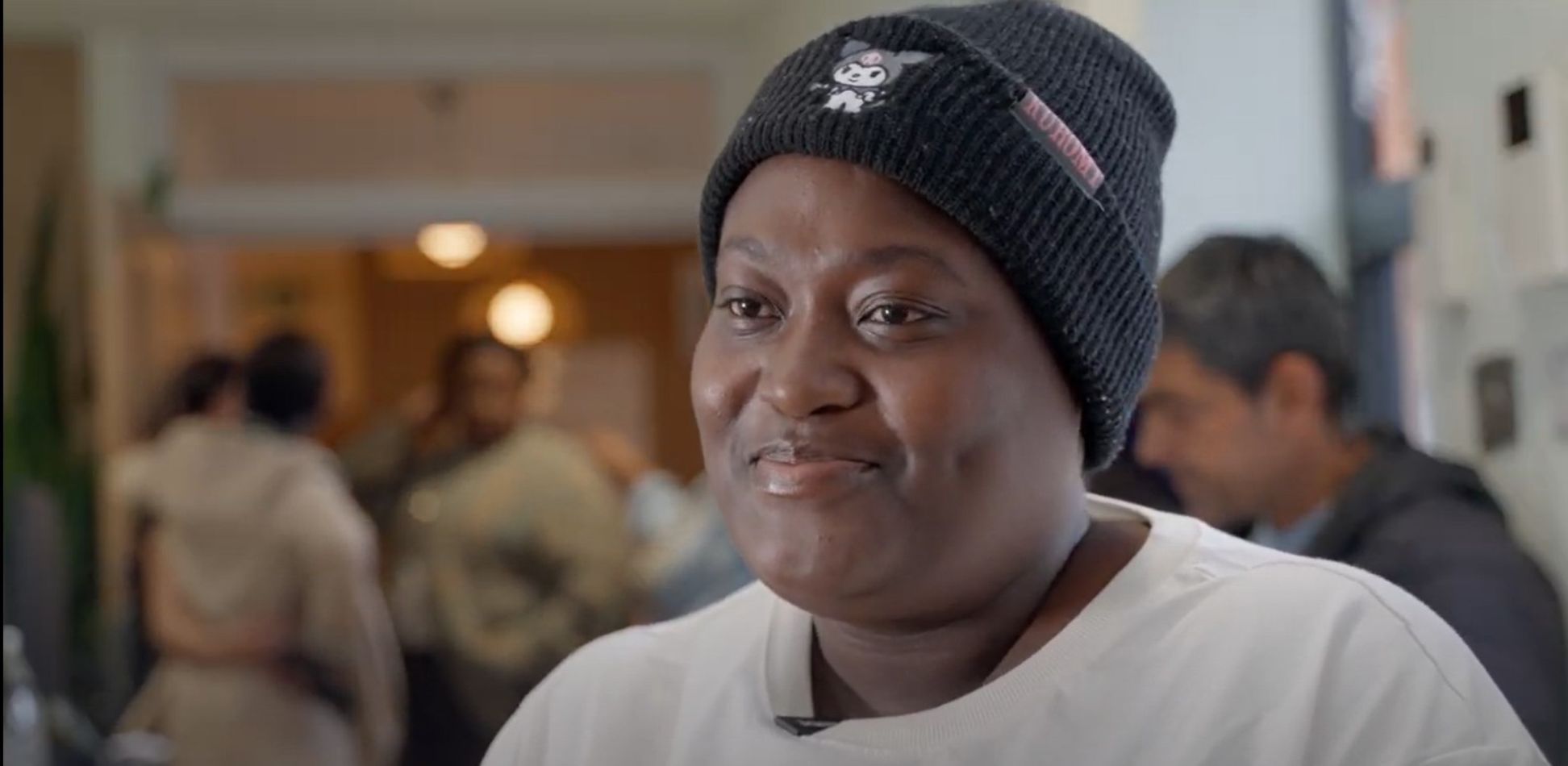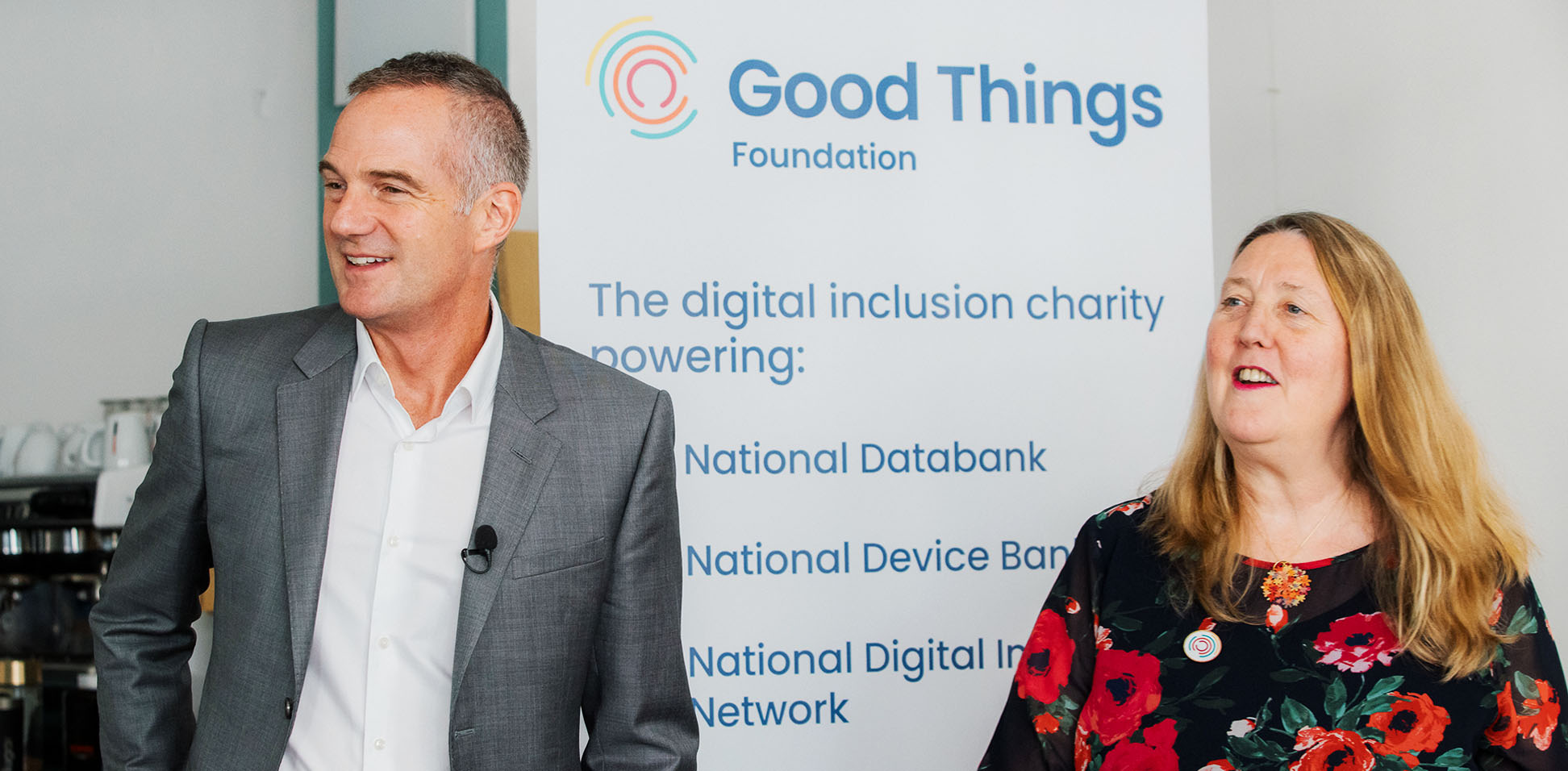Good Things Foundation helps launch new Government-backed IT Reuse Charter
Good Things Foundation has worked alongside the Government and major partners including Vodafone, Three and Deloitte to develop the new IT Reuse for Good Charter, launched today. The charter encourages organisations to donate pre-loved tech to support 1.5 million digitally excluded people in the UK.
The initiative is part of a wider effort to tackle the UK’s digital divide and e-waste crisis. Organisations signing the charter can choose a charity partner to distribute their devices, helping to ensure technology that would otherwise go to waste is refurbished and reused to benefit those most in need.
With essential services like job applications, healthcare access and housing increasingly moving online, the charter represents a commitment to improve digital skills and access to devices for everyone.
Helen Milner OBE, Group CEO of Good Things Foundation, said:
“Alongside the Government, Vodafone, Three and Deloitte, Good Things Foundation has developed the IT Reuse for Good Charter, tackling the UK’s digital divide and e-waste crisis head-on. With 1.5 million adults lacking essential devices and 1.45 million tons of e-waste discarded yearly, we’re proud to lead the charge for a more inclusive and sustainable future.”
The Charter builds on the success of our National Device Bank and will be a game-changer, unlocking thousands of devices. We have also launched a Playbook to help businesses to navigate IT reuse for good, and bake it into their organisations.”
The charter includes a set of principles for businesses to follow, including ensuring devices are securely wiped, professionally refurbished, and fit for purpose, so they can be provided free of charge to those who need them.
This builds on the success of the National Device Bank, an initiative led by Good Things Foundation. Through this scheme, people like Ryan — a single father from Essex — have already received the support they need. Ryan received a donated laptop that transformed his ability to job search, train online and build a better future.
“This laptop isn’t just a piece of equipment – it’s a lifeline,” said Ryan.
“I want my kids to see what’s possible with determination and the right support.”
Research shows that digitally excluded people face higher costs for everyday essentials like home insurance, train travel and food — paying up to 25% more on average than those who are online.
For more information, visit the Digital Inclusion Action Plan and read the Centre for Social Justice - Left Out (2023) report on tackling digital exclusion.

.jpg)
